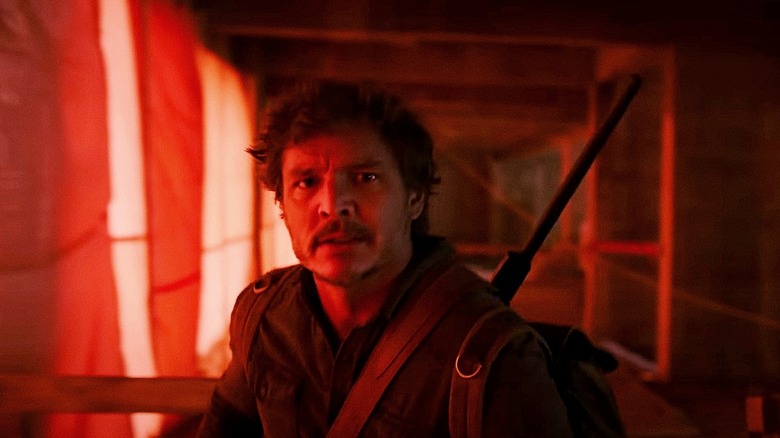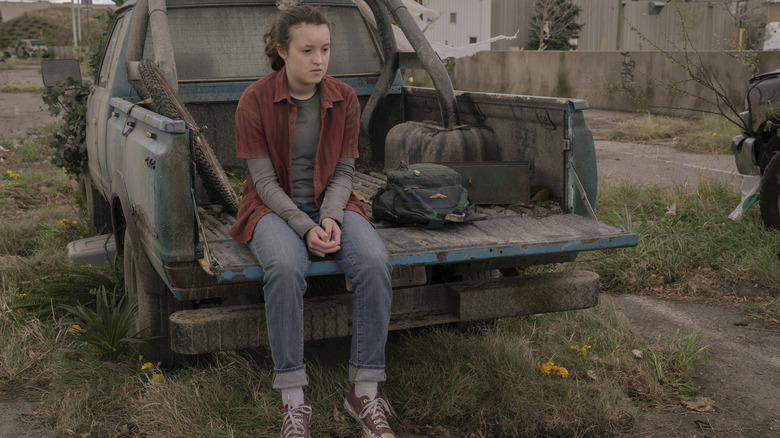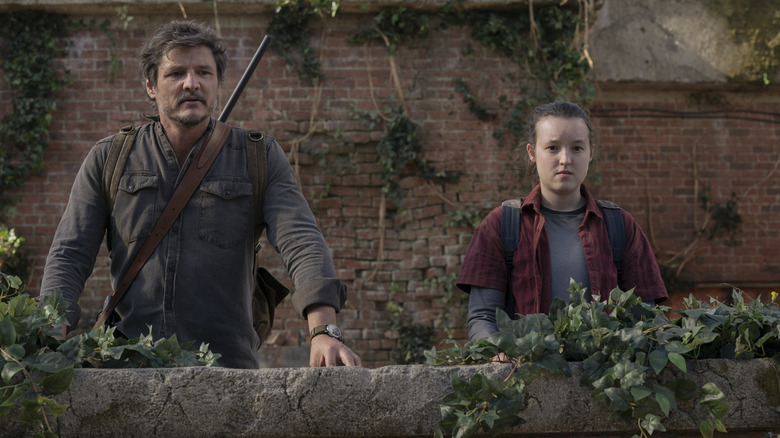The Last Of Us Makes Joel's Fateful Decision Even More Horrifying Than The Game
This article contains spoilers for 'The Last of Us."
"The Last of Us" is set in a rather bleak world, one where there is no hope, where any semblance of civilization and caring is a luxury, and where people have resigned themselves to surviving rather than living. It makes sense, since the fungal apocalypse started with such a big betrayal to our way of life, with the food supply hiding the outbreak, signaling that even something as essential to everyday life as flour could destroy your life. In the world of the show, there is little reason to care about other people when you can barely take care of yourself.
This is why an episode like the Bill and Frank side story felt so unique and special. By changing the tone of that chapter of the story and its conclusion, "The Last of Us" makes it clear that the most important thing in the world is finding human connections, to love someone enough that you would burn the world for them. This is also doubled down on the Henry and Sam episode, showing Henry to be aware of his actions but also knowing he'd do it again because he cared about his brother.
This is to say, "The Last of Us" has slowly been building up to its final episode, where Joel chooses to doom the world in order to save someone he cares about. Joel shooting up the Fireflies to save Ellie is a huge, pivotal moment in the game, one that cemented the boldness of the story. Though the TV show simply could not replicate the context of that scene, it somehow made it scarier by making it less shocking.
A lack of choice
After surviving the dumbest cannibals in the history of zombie apocalypses, Joel and Ellie finally make it to Salt Lake City, where they find a hospital filled with Fireflies. But when Joel learns that to find a cure the doctors have to kill Ellie to get access to her brain, he freaks out and kills the whole staff to rescue her.
In the game, this is a huge shock, because it plays with audiences' expectations about having agency in the story. Sure, there were no dialogue trees before this moment, so there was no big indication that you could decide the outcome of the quest. This was no "Mass Effect" where entire worlds are shaped by your actions. And yet, to outright have Joel act against what many players were trying to achieve felt huge.
That's because the game forces you to not only watch Joel kill a bunch of people, it makes you kill them with him, to execute the doctor who is trying to save the world, to execute Marlene. It is a fantastic twist that pulls the rug from under the audience, shows Joel for who he really is, and also shows how bleak and devoid of hope this world is.
Of course, you can't play as Pedro Pascal when watching "The Last of Us" but the HBO show finds a brilliant way to replicate the horror of this moment — by telling you way in advance that it is coming.
Telegraphing choices
Rather than making Joel's choice to rescue Ellie come out of nowhere, "The Last of Us" drops hints of his codependence all throughout the episode. During an otherwise heartwarming scene of Ellie marveling at giraffes, Joel immediately tries to temper her expectations about a cure for Cordyceps, suggesting they just turn around and go back to Jackson together. Then, as they start approaching the hospital, Joel opens up for the first time about Sarah and even reveals he tried to kill himself.
Sure, it could be that Joel has grown to see Ellie as more than cargo from when she saved his life, but the way Pascal communicates a sense of urgency in Joel's words and expressions says otherwise. It is as if he is desperately trying to delay or prevent their journey from ending. So, when Joel breaks down and tells Marlene she doesn't understand, and she fights back, saying she knows better than anyone how hard it is to sentence Ellie to die since she was there when she was born, the show makes it clear Joel is not thinking straight, or even thinking about Ellie.
This harkens back to, well, the entire season. "The Last of Us" has been showing us all along the power, and the cost of human relationships. In the Bill and Frank episode, as beautiful as their relationship was, they did shut off their little neighborhood to the outside world rather than offer aid and shelter. Then we saw how Henry's attempts to save his brother doomed an entire city.
Rather than play with a gamer's expectations of agency, "The Last of Us" has constantly weighed the price of a friend or a loved one versus the well-being of humankind, and shows how hard it is to choose the latter.


